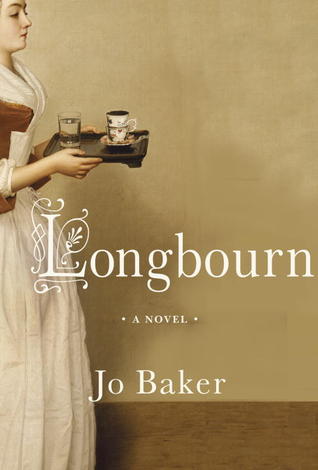Doubleday brings us two novels that are "writing back" to 1800s literature. John Boyne's latest novel This House is Haunted is a horror in the gothic style. Boyne plays around with references to Victorian classics and must have had great fun writing this. For me, it was the perfect snuggle-under-the-blanket-for-winter read, but it won't stay with me for too long:)
The protagonist is the young newly "orphaned" governess Eliza Caine who leaves London for Norfolk after her father passes away. She quickly realises that all is not how it should be at Gaudlin Hall, where she is hired to take care of two strange siblings. It turns out that there has been quite a few governesses at Gaudlin Hall the past year, most of which all died, one after the other.
This could be a Gothic version of Jane Eyre. We have the traditional madwoman/ madman in the attic. As in Jane Eyre, the madwoman in question is a foreigner (is it impossible to imagine an Englishwoman as a madwoman?!). Unlike in Jane Eyre, however, Eliza does not end up marrying the husband.
Eliza is an interesting protagonist. She refuses to be scared and for the longest time lives in denial about what goes on around her. Regardless of the threats to her own person, she will not abandon the children, and she persists in getting to the bottom of the mysteries surrounding the Hall.
A great shivery read with fun (!) references to some of my favourite classical authors such as the Bronte sisters, Jane Austen and Charles Dickens.
And to stay with Jane Austen, Longbourn is a rewrite of Pride & Prejudice from the servants' perspective. I was a bit skeptical at first, but after a few pages I was completely engulfed in it.
Our protagonist is the young maid Sarah who spends her days cleaning for the Bennet family. The arrival of a new footman cause quite a change for Sarah. Not only does James' presence lighten her load, but it also stirs unknown feelings in Sarah's heart. At the same time, a dark and handsome footman in the neighbourgood (Mr Bingley's footman, as it happens!) is decisively flirtatious with Sarah whenever he has the chance, and seeing as James keeps avoiding her, Sarah is more than happy to flirt back.
But something is going on under the surface. Sarah overhears the housekeeper having a heated discussion with Mr Bennet, the master of the house. Why is Mrs Hill the only one who is allowed to disturb Mr Bennet in his library? And why is James determined to stay well away from the soldiers that keep visiting the daughters of the house?
In the background, we as readers are kept up to date about what the Bennet sisters are doing, but this is in no way a big focus of the story. What is more interesting, is that Baker brings to the forth the backdrop of slavery as a means to the riches that, say, Mr Bingley possesses.
Of the main characters from Pride & Prejudice Mr Wickham is the one who seems to have the strongest presence in Longbourn. As in Pride & Prejudice, Wickham's role is to charm the young girls whilst alienating and intimidating the men who are too weak (?) to stand up to him. But thankfully, as in P&P, Wickham doesn't win in his schemes.
I really enjoyed the little artistic liberties Baker took in writing this. Some of the plot sequences were such that I wish they were part of the original P&P. In the reading of this book, I truly came to care for Sarah, and her story is worth telling in it's own right - with or without the connection to P&P. In other words, this is a great read for fans of Jane Austen, but readers who haven't read Jane Austen will still enjoy this.
Longbourn should be released in August this year to coincide with the 200th anniversary of the first publication of Pride & Prejudice. I'm also excited that the movie rights have been sold :) Perhaps some time in the future, BBC will even make a joint miniseries of both books, making it a sort of Downton Abbey-style Pride & Prejudice.

